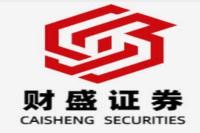Prospect Capital's John Barry III: A Defense of Strategy or a Sign of Desperation?
Meta Description: Prospect Capital Corp.'s John Barry III defends the company's investment strategy, dismissing criticism as "absurd" during a recent earnings call, but does his passionate defense raise more questions for investors? Explore the controversial PIK arrangements, the reliance on retail investors, and the potential for a shift in strategy.
Prospect Capital Corp., a publicly traded private credit fund with $8 billion under management, has been under fire recently. The criticism, largely focused on the company's use of Payment-in-Kind (PIK) arrangements and its reliance on retail investors for funding, was brought to the forefront during a recent earnings call when CEO and founder John F. Barry III lashed out at a Wall Street analyst.
The tension escalated when Finian OShea of Wells Fargo inquired about the circumstances under which Prospect might force the conversion of some preferred shares into common stock. Barry, in a fiery rebuttal, dismissed the question as "absurd," insisting there was no reason for the company to consider such an action.
This outburst, however, has fueled speculation about Prospect Capital's true intentions and raises several critical questions for investors. Is Barry's passionate defense a sign of confidence in the company's strategy, or a desperate attempt to reassure investors in the face of mounting concerns?
The PIK Controversy
Payment-in-Kind (PIK) arrangements, a common feature in private credit, allow borrowers to pay interest on their loans with additional equity, rather than cash. While offering potential higher returns for lenders, they also come with inherent risks, particularly in times of economic uncertainty.
Prospect Capital has been criticized for its heavy reliance on PIK arrangements, with some analysts arguing that this strategy could lead to unsustainable debt levels for the company's portfolio companies. Critics also highlight the potential for conflicts of interest, as Prospect, through its PIK arrangements, essentially owns a growing stake in the companies it lends to.
Retail Investor Dependency
Another point of contention is Prospect Capital's significant reliance on retail investors for funding. This contrasts sharply with the typical investment model of private credit funds, which usually rely on institutional investors with a higher risk tolerance and a deeper understanding of complex financial instruments.
This reliance on retail investors has raised concerns about potential misalignment of interests and limited transparency. Critics argue that retail investors may not fully grasp the complexities and risks associated with investments in Prospect Capital, potentially leading to uninformed investment decisions.
A Shift in Strategy?
The recent criticisms and Barry's passionate defense raise questions about the company's future strategy. Is Prospect Capital planning to continue its current path, embracing PIK arrangements and retail investor funding, or will it pivot towards a more traditional approach?
The lack of clarity on this front has left many investors uncertain about the long-term prospects of the company. While Barry's dismissal of concerns may have temporarily calmed the waters, it has also raised eyebrows about the company's willingness to engage transparently with investors.
The Need for Transparency
In the wake of these controversies, Prospect Capital needs to address investor concerns with greater transparency and clarity. This includes:
- Providing a comprehensive overview of the company's PIK arrangements, including the risks associated with them.
- Sharing detailed information about the company's portfolio companies, including their financial health and potential for future growth.
- Engaging in open and honest dialogue with investors, addressing concerns and providing clear answers to their questions.
By taking these steps, Prospect Capital can build trust with investors and demonstrate its commitment to responsible and sustainable investment practices.
Frequently Asked Questions (FAQs)
Q: What are PIK arrangements and why are they controversial?
A: PIK, short for "Payment-in-Kind", allows borrowers to pay interest on their loans with additional equity rather than cash. While offering potential higher returns for lenders, PIK arrangements also come with risks like unsustainable debt levels and potential conflicts of interest.
Q: Why is Prospect Capital criticized for relying on retail investors?
A: Private credit funds usually rely on institutional investors with a higher risk tolerance. Prospect Capital's reliance on retail investors raises concerns about potential misalignment of interests and limited transparency.
Q: What are the potential risks associated with investing in Prospect Capital?
A: Risks include the potential for losses due to the company's investment strategy, particularly its reliance on PIK arrangements. There's also the concern about the company's reliance on retail investors, which could lead to misaligned interests and information asymmetry.
Q: Is Prospect Capital a good investment?
A: This is a complex question with no easy answer. While the company has a long history of generating returns, its current investment strategy is controversial. Whether it's a good investment depends on your individual risk tolerance and investment goals.
Q: What are the potential consequences for Prospect Capital if it fails to address investor concerns?
A: Continued criticism could lead to a decline in investor confidence, potentially impacting the company's ability to raise capital and grow its business. This could also lead to increased regulatory scrutiny and potential legal challenges.
Conclusion
Prospect Capital's recent controversies have raised serious questions about its investment strategy. While Barry's defense of the company's actions may have temporarily calmed the waters, it has also fueled speculation about the true intentions behind the company's strategy.
The company's future success will depend on its ability to address investor concerns transparently and demonstrate its commitment to responsible and sustainable investment practices. The coming months will be crucial for Prospect Capital as it seeks to regain investor confidence and navigate the choppy waters of criticism.



